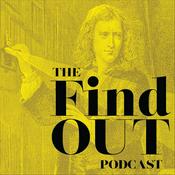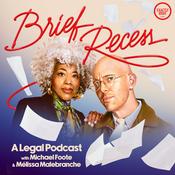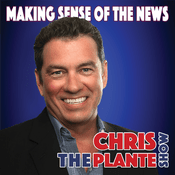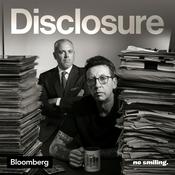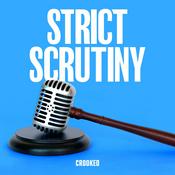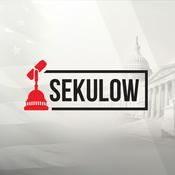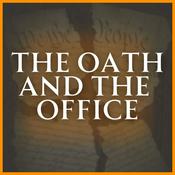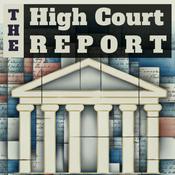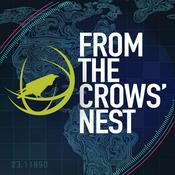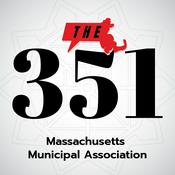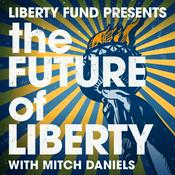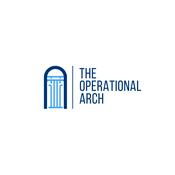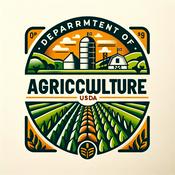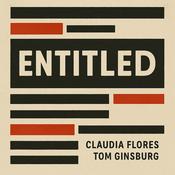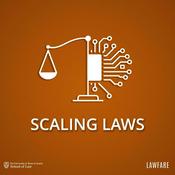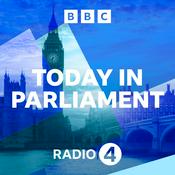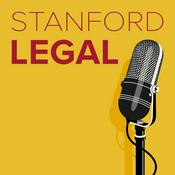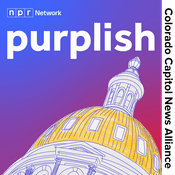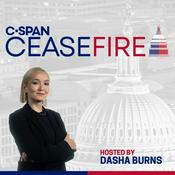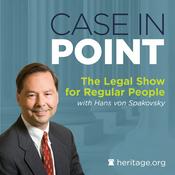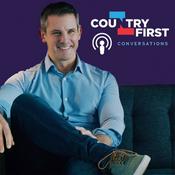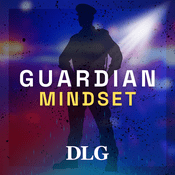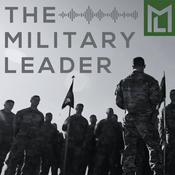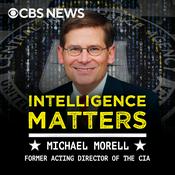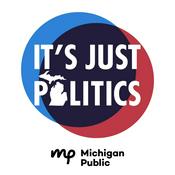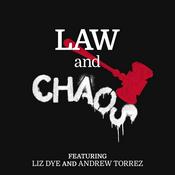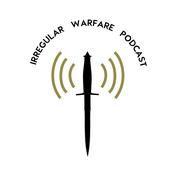20 episodes
The 10 Year Anniversary of the Mountain Accord Charter
12/18/2025 | 50 mins.
2025 marks the 10 year anniversary of the Mountain Accord Charter. This charter isa landmark, consensus document that memorializes the hard fought negotiations and agreements that were struck among the major interests of the Central Wasatch.In this episode, former Central Wasatch Commission Staff, Ben Kilbourne, facilitates a conversation with three individuals that were instrumental in the Mountain Accord process. Featured in this conversation are former Salt Lake County Mayor and U.S. Congressman Ben McAdams; former Utah State Representative and former Salt Lake City Mayor Ralph Becker; and current Summit County Councilmember and CWC Commissioner Chris Robinson.
Fun with Tom Diegel
9/24/2025 | 1h 21 mins.
Today we’re going walking with Tom Diegel in the Wasatch. Tom has been involved with the CWC for some time now, and has held the Stakeholders Council Co-Chair role for the last two years. He’s focused a lot of his efforts on Mill Creek Canyon, and has a special affinity for it, so that’s where we went.Tom is heading to Europe for the winter so I wanted to give him a chance to reflect on his time with the CWC before crossing the Atlantic. We discuss timely topics like the construction in upper Mill Creek Canyon and the Update to the shuttle feasibility study. Tom’s been working on the shuttle project in particular for many years, so he is able to provide a detailed lowdown on its history. We also discuss the possible rescission of the 2001 Roadless Rule and what that could mean for the Wasatch. Finally, I ask him my favorite question, the question I ask all interviewees. What does the Wasatch mean to you—in unquantifiable terms? I ask this question because I have a gut feeling that there's something you can’t put your finger on that underpins all the work we do at the CWC. I have a feeling the real meaning of the mountains can’t be measured in the distance from your front door to a trailhead or in tax revenue dollars. And it’s possible that that special something will be described differently by different people. Tom, in his unique and surprising way, identifies fun, or the ability to have fun so easily as the “special something” that makes the Wasatch the place he wants to call home. Personally, I think he’s onto something. Fun and playing are antidotes to the harder parts of life, and here, with incredible mountains in reach, we’re able to have a type of fun that rejuvenates those parts of our spirits that get beaten down by the fast pace of the world, the news cycles, the internet, and the relentless attention economy. Tom also admits that, for the last 23 years he’s kept a spreadsheet in which he logs nearly every outdoor activity he does. The title of the spreadsheet, perfectly, amazingly, and ironically, is Fun. It made me laugh when I reflected on our conversation later and realized that his spreadsheet is an effort to quantify the unquantifiable. In any case, I don’t think you’ll be able to listen to this episode without feeling stoked by the end. Tom’s excitement sure rubbed off on me. By the end of our walk I was like “this place is even more incredible than I thought it was” And the result of that realization, for me, is an increased drive to work for the land, to protect it, and an increased drive do everything in my power to find time in my life to get out there and have fun.Chapters:00:00 Intro05:54 Mill Creek Canyon: A Hidden Gem08:57 The Mill Creek Canyon Shuttle Project11:47 The Importance of Recreation14:49 The Role of the Stakeholders Council17:43 Public Engagement and Feedback20:45 The Future of Mill Creek Canyon23:32 Challenges in the Wasatch26:35 The Roadless Rule and Its Implications29:36 The Value of Fun and Recreation32:32 The Role of Youth in Conservation35:33 Reflections on the Central Wasatch38:37 The Impact of Climate Change in the Wasatch41:44 Community and Connection in the Outdoors44:38 The Future of Outdoor Recreation in the Wasatch47:51 Final Thoughts on the Wasatch
Educating the Next Generation of Central Wasatch Stewards with Helen Nadel
8/19/2025 | 25 mins.
Summit Community Gardens and EATS connect Summit County residents, and especially kids to what it really means to live in the Central Wasatch. For the second consecutive year, they have been awarded a grant through CWC's short-term grant program for their environmental education program where they connect kids to the process of growing food in rocky clayey soil at more than 6,600 feet above sea level. The result? The next generation of Central Wasatch stewards with a deep knowledge of soil health, weather, climate, native vegetation, firewise planting, and how to grow things in the Central Wasatch. It's undeniable that increased local knowledge results in care for place. When people care for the place where they live, as Wallace Stegner once told us, they tend to stick around. And there's almost nothing more beneficial to the Central Wasatch--or any place--than a population who is invested and therefore wants to stay, through thick and thin. We met Summit Community Gardens' Executive Director Helen Nadel at the garden and she walked us through bee-laden flowers, collaborative areas where kids were harvesting sugar snap peas, the La Milpa plot, and even her own garden plot. Come take a walk with us and learn how the Central Wasatch is benefiting--now and in the future--from the short-term grant Summit Community Gardens received from the CWC.Chapters00:00 Introduction to the Central Wasatch Commission02:48 The Mountain Accord and Environmental Stewardship05:55 Summit Community Gardens: A Community Hub09:05 Connecting Kids to Food and Agriculture11:53 Adapting to High Elevation Gardening14:38 Soil Health and Sustainable Practices17:25 Education and Community Engagement20:26 Conclusion and Future DirectionsMountain AccordShort-Term Projects Grant ProgramSummit Community Gardens & EATS
Restoring East Canyon Creek with Rhea Cone
7/17/2025 | 14 mins.
Every year the CWC distributes grants for Short-Term Projects that would help further the goals of the Mountain Accord by implementing transportation and transit solutions, protecting the ecosystems that originate in the Central Wasatch, stewarding recreational access, and sustaining the economic vitality of the area. This year, the Swaner Preserve and Ecocenter applied for a grant to remove old fencing along East Canyon Creek in Kimball Junction, and in May, CWC awarded Swaner $5,000--exactly the amount they needed to pay a trained crew to remove the tangled wire and t-posts from the banks of the creek.To kick off our first "shorts" episode of In The Wasatch, I met Rhea Cone, Swaner's Conservation Director, at the project site to see how the work was progressing. The crew had already removed a quarter mile of fencing but had nearly three-quarters of a mile remaining. "The fencing...has just fallen into disrepair, is a barrier to wildlife passage, and prevents our staff and volunteers from moving safely though the area to do other restoration work," Rhea said. Once the project is complete, she told me, other restoration work can begin. They will be able to plant more narrowleaf cottonwoods and perform invasive species removal, among other needed projects.What really stood out to me, is that in my short time on the Preserve, we saw red tailed hawks, fish, fox holes, ducks, songbirds, and a handful of riled-up and very large bees--evidence that the Swaner Preserve is an incredible bright spot of biodiversity on the edge of a bustling urban center. It's exactly the kind of place that makes the Central Wasatch a place like no other.#wearethewasatch #swanerpreserve #restoration #shorttermgrants #cwc #centralwasatchcommission #wildlifehabitat #conservation #ecosystem #treeplanting #beavers #biodiversity #communityinvolvementTakeawaysThe removal of fencing is crucial for wildlife passage.Tree planting will provide shade and stabilize creek banks.Exclusionary fencing can hinder restoration efforts.Beavers play a vital role in maintaining ecosystems.Planting native species enhances biodiversity.Community involvement is essential for conservation success.Professional help can significantly improve project outcomes.Chapters00:00 Restoration Efforts at East Canyon Creek01:51 Introduction to the Central Wasatch Commission02:23 The Importance of Removing Exclusionary Fencing04:31 Enhancing Wildlife Habitat and Ecosystem06:42 The Role of Beavers in Ecosystem Engineering08:19 Planting Native Species for Biodiversity09:42 Challenges in Restoration Projects11:34 The Impact of Professional Help in Conservation12:27 Conclusion and Call to ActionSwaner Preserve & Ecocenter CWC Short-Term Grants Program
Long-Term Thinking with John Knoblock
7/01/2025 | 1h 15 mins.
John Knoblock is the Central Wasatch Commission’s outgoing Stakeholders Council Chair. In this role he has actively participated in nearly every System Committee meeting, every Stakeholders Council meeting, and every Board meeting for the last two years. Since his term is up at the end of the month, we wanted to give him a chance to share his thoughts on his tenure in a podcast-style exit interview. To make it a special event we asked him to choose a location in the Central Wasatch that he’s passionate about. For reasons that become increasingly clear through the duration of the conversation, he had me meet him at the foot of Grandeur Peak on a sunny summer morning where the latest section of the Bonneville Shoreline Trail has recently been completed.The conversation switched back and forth as we ascended the singletrack trail, but a strong narrative thread ran throughout: Whether the topic is trails, transportation, or conservation, John touts the importance of embracing long-term thinking. Without a decent grasp of history, he says, it’s hard to remain committed to big and important projects. This newest section of the Bonneville Shoreline Trail, for example, took him more than 20 years to finish. By the end of our walk, 20 years seemed like a much shorter duration than it did at the trailhead. The Mountain Accord is only 10 years old and the Central Wasatch Commission is only seven years old, John reminds us–and big goals such as the Central Wasatch Conservation and Recreation Area Act (CWNCRA) could take 20 years to complete, but they will get done.Chapters00:00 The Journey of the Bonneville Shoreline Trail01:52 Connecting Community and Nature04:51 The Urban-Wildland Interface09:00 Land Acquisition Challenges12:54 Trail Development and Community Involvement15:48 Trail Design Considerations19:47 Legislative Challenges and Opportunities25:32 The Role of IMBA and Community Support30:52 Incremental Progress vs. Comprehensive Solutions34:54 Ski Resorts and Legislative Support35:30 Reflecting on Two Years of Progress41:08 Building Collaborative Relationships47:59 The Long View: Patience in Progress54:07 Education and Long-Term Thinking01:01:08 Finding Common Ground in Conservation01:05:51 The Personal Connection to Nature#BonnevilleShorelineTrail #CentralWasatchCommission #landacquisition #communityinvolvement #traildevelopment #urbanwildlandinterface #outdoorrecreation #environmentalprotection #legislation #IMBA #CentralWasatch #MountainAccord #collaboration #environmentalconservation #longterm thinking #stakeholderengagement #recreation #communitydialogue #sustainabledevelopmentMountain Accord https://cwc.utah.gov/mountainaccord/Central Wasatch Commission https://cwc.utah.gov/Visitor Use Study https://cwc.utah.gov/visitor-use-study/CWNCRA https://cwc.utah.gov/legislation-and-federal-designation/Donate to CWC Project work https://cwc.utah.gov/contribute/Trails Utah https://trailsutah.org/
More Government podcasts
Trending Government podcasts
About In the Wasatch
Listen to In the Wasatch, The Find Out Podcast and many other podcasts from around the world with the radio.net app
Get the free radio.net app
- Stations and podcasts to bookmark
- Stream via Wi-Fi or Bluetooth
- Supports Carplay & Android Auto
- Many other app features
Get the free radio.net app
- Stations and podcasts to bookmark
- Stream via Wi-Fi or Bluetooth
- Supports Carplay & Android Auto
- Many other app features

In the Wasatch
download the app,
start listening.
